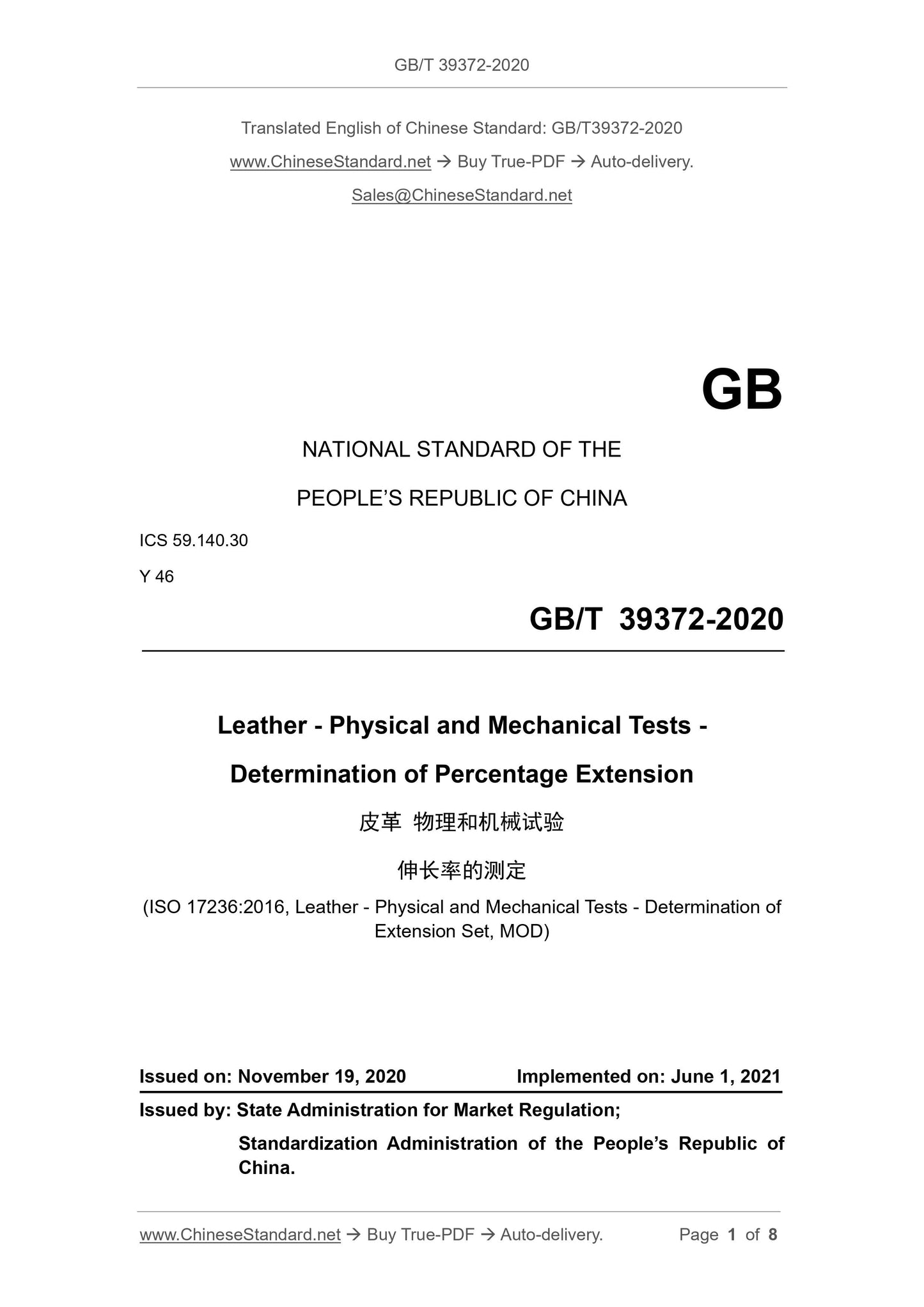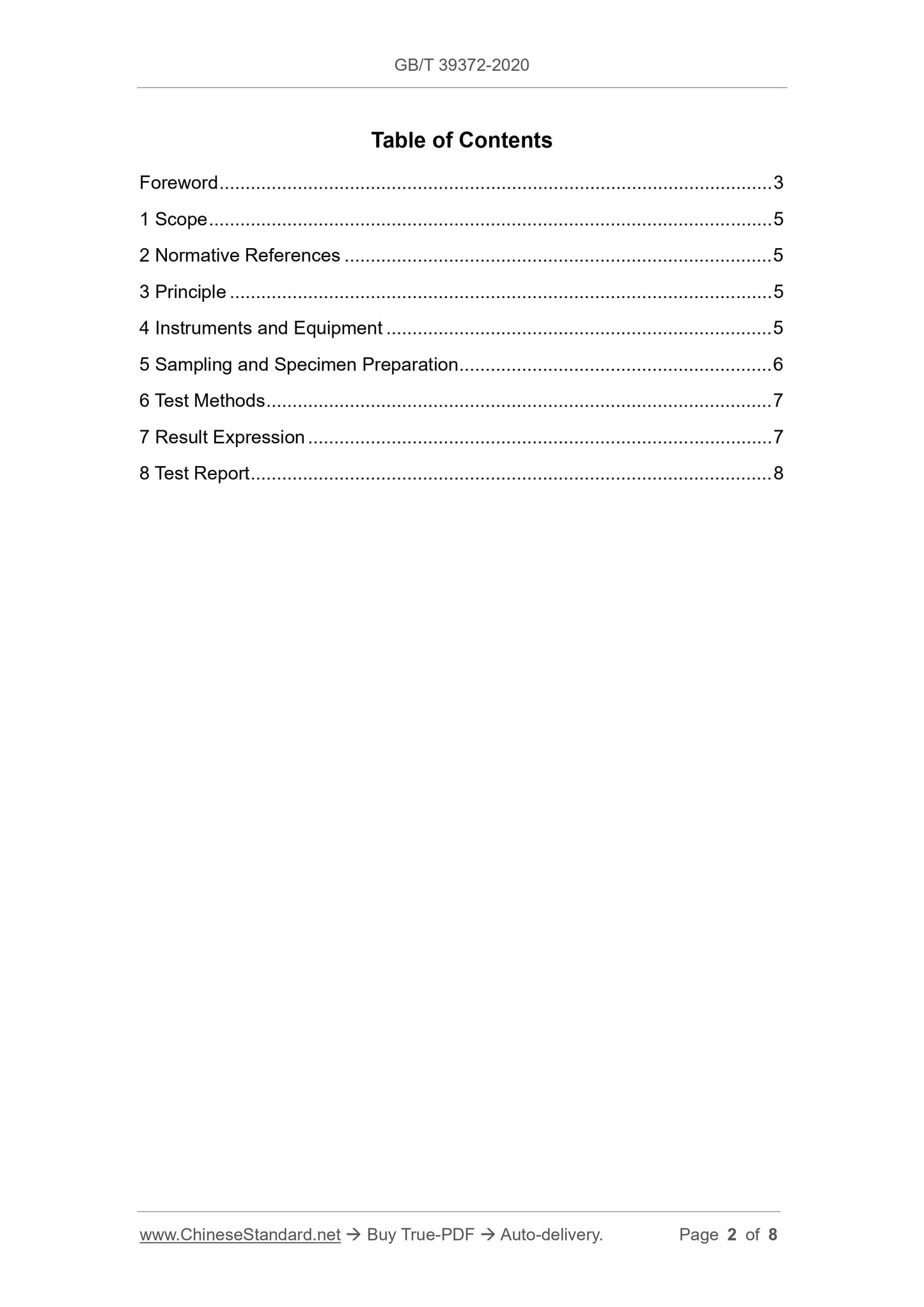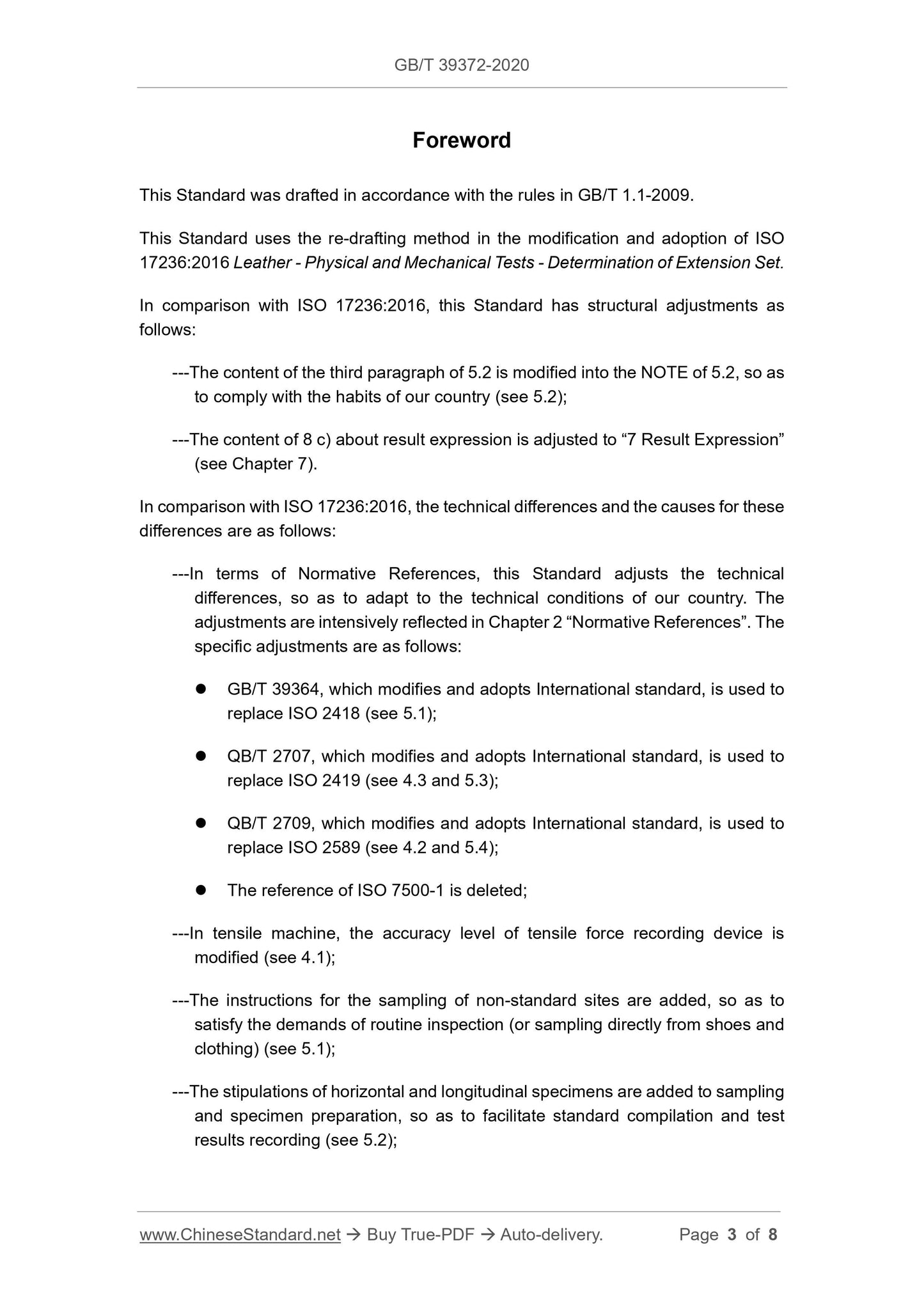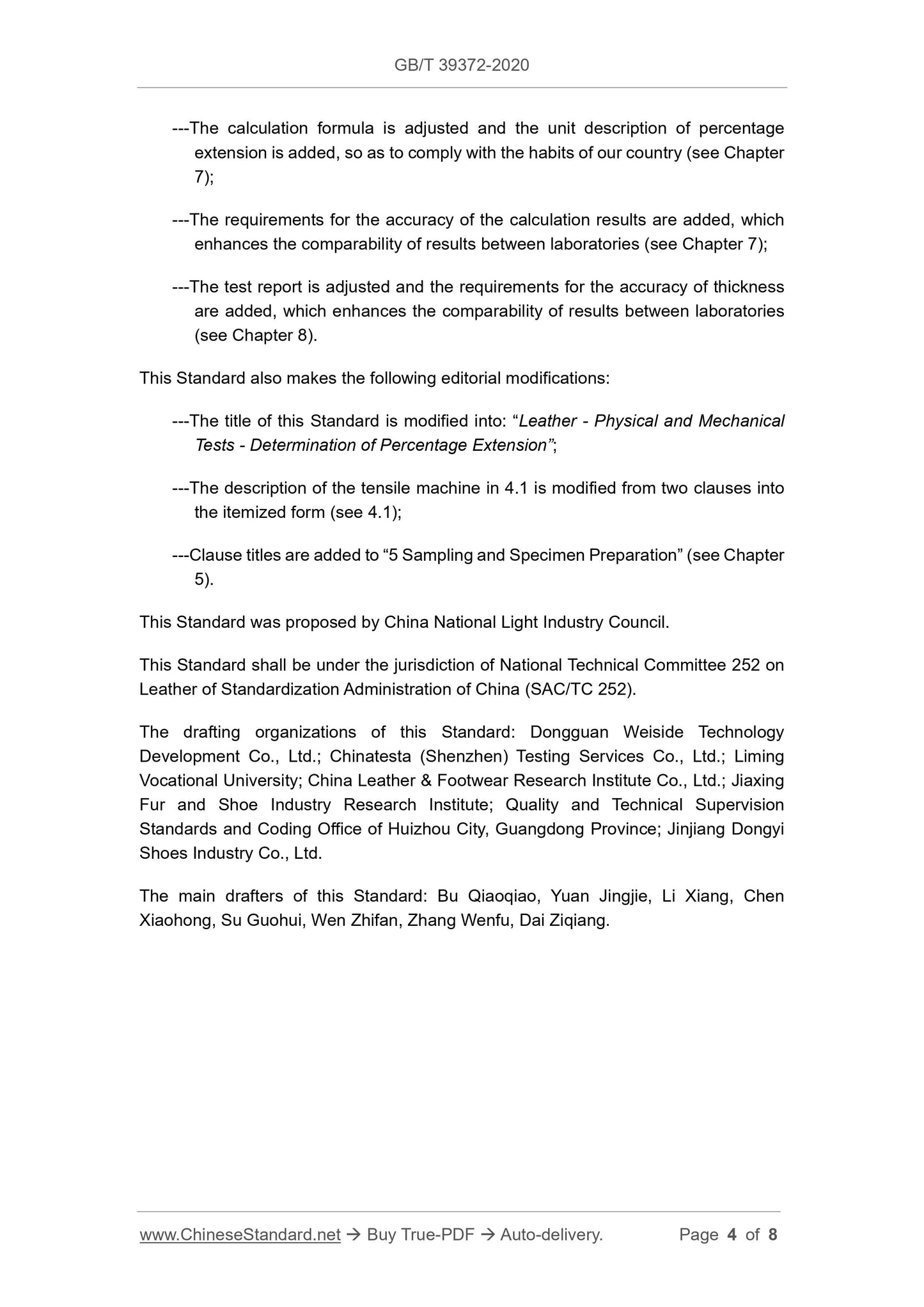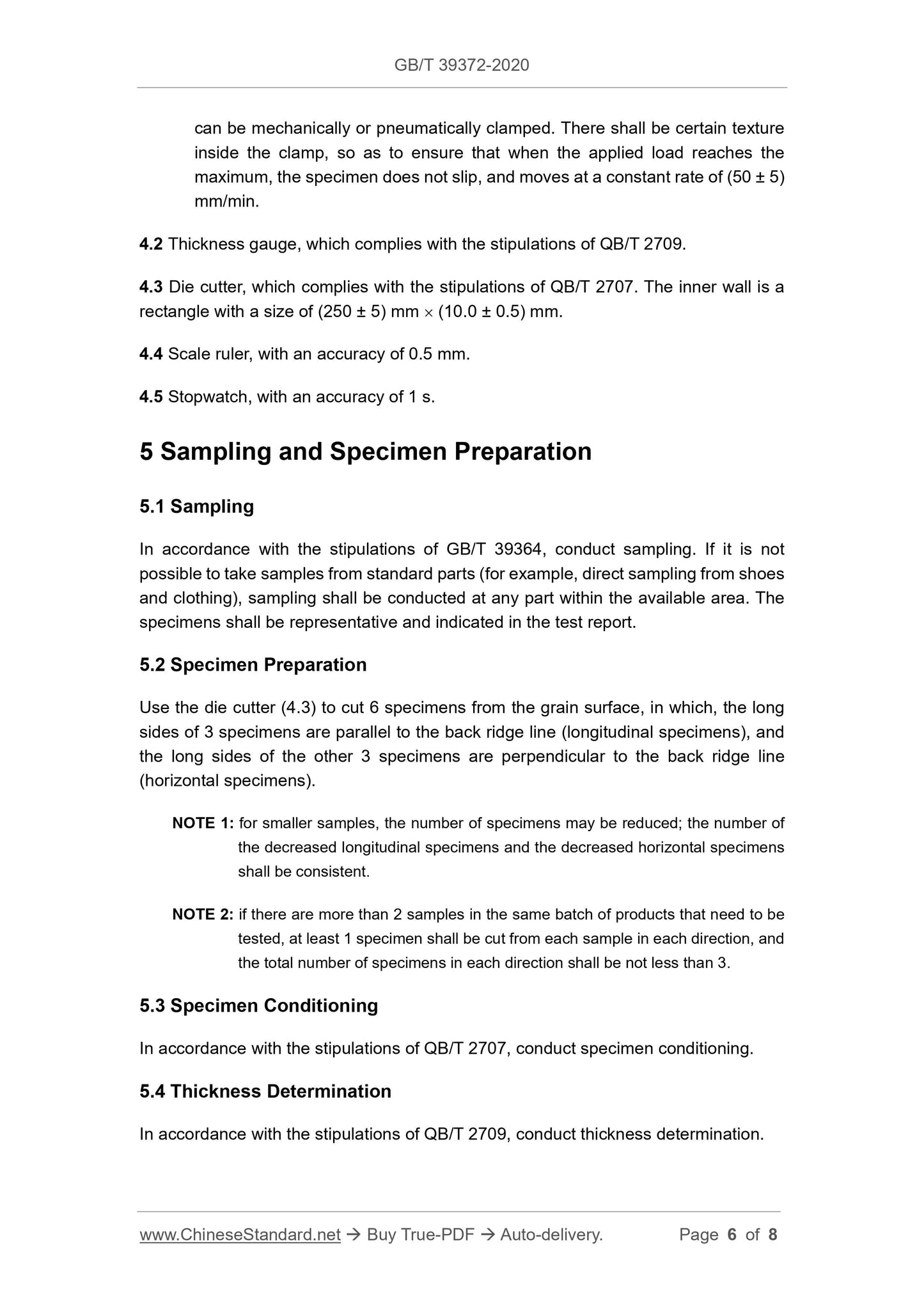1
/
of
5
www.ChineseStandard.us -- Field Test Asia Pte. Ltd.
GB/T 39372-2020 English PDF (GB/T39372-2020)
GB/T 39372-2020 English PDF (GB/T39372-2020)
Regular price
$105.00
Regular price
Sale price
$105.00
Unit price
/
per
Shipping calculated at checkout.
Couldn't load pickup availability
GB/T 39372-2020: Leather - Physical and mechanical tests - Determination of percentage extension
Delivery: 9 seconds. Download (and Email) true-PDF + Invoice.Get Quotation: Click GB/T 39372-2020 (Self-service in 1-minute)
Newer / historical versions: GB/T 39372-2020
Preview True-PDF
Basic Data
| Standard ID | GB/T 39372-2020 (GB/T39372-2020) |
| Description (Translated English) | Leather - Physical and mechanical tests - Determination of percentage extension |
| Sector / Industry | National Standard (Recommended) |
| Classification of Chinese Standard | Y46 |
| Classification of International Standard | 59.140.30 |
| Word Count Estimation | 5,565 |
| Date of Issue | 2020-11-19 |
| Date of Implementation | 2021-06-01 |
| Regulation (derived from) | National Standard Announcement No. 26 of 2020 |
| Issuing agency(ies) | State Administration for Market Regulation, China National Standardization Administration |
Share
